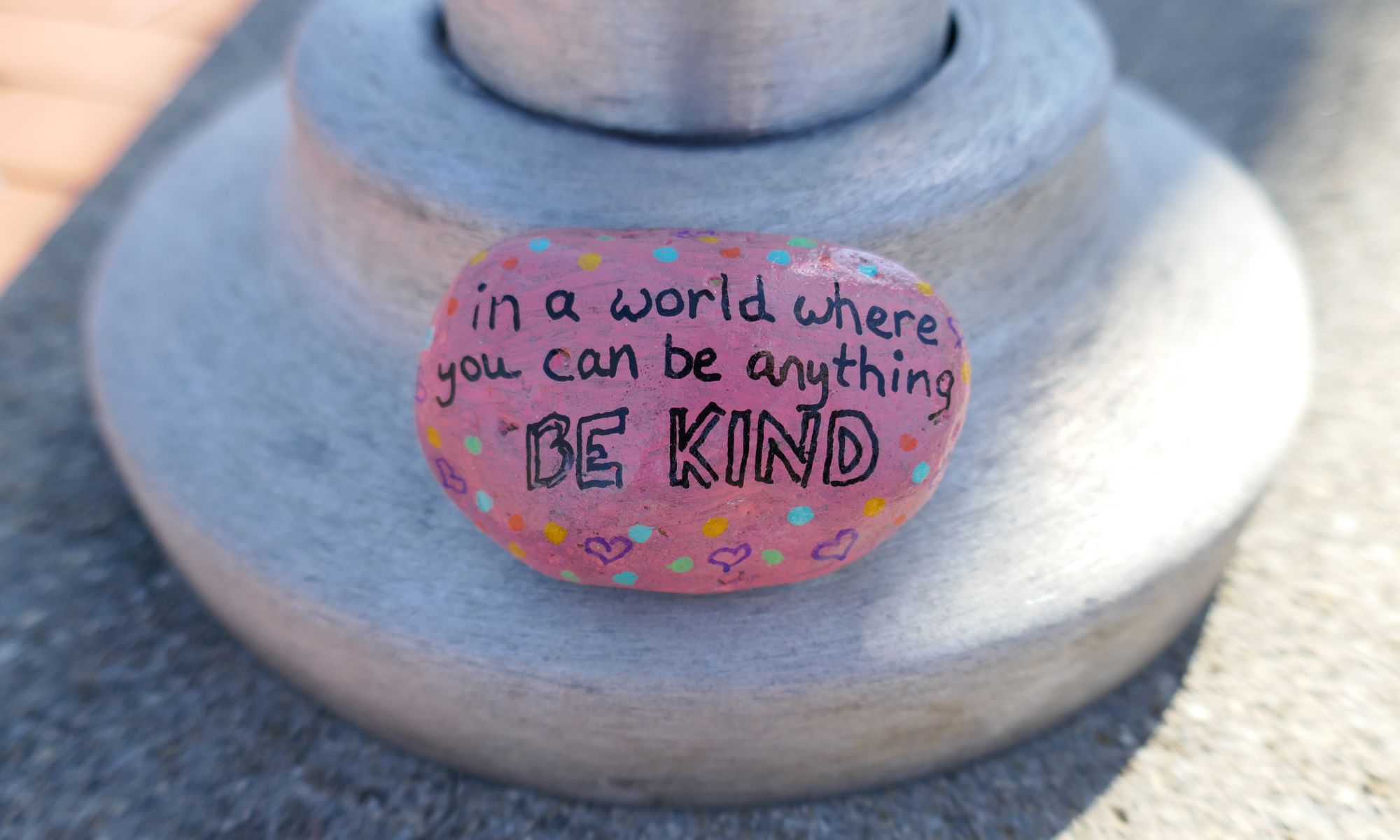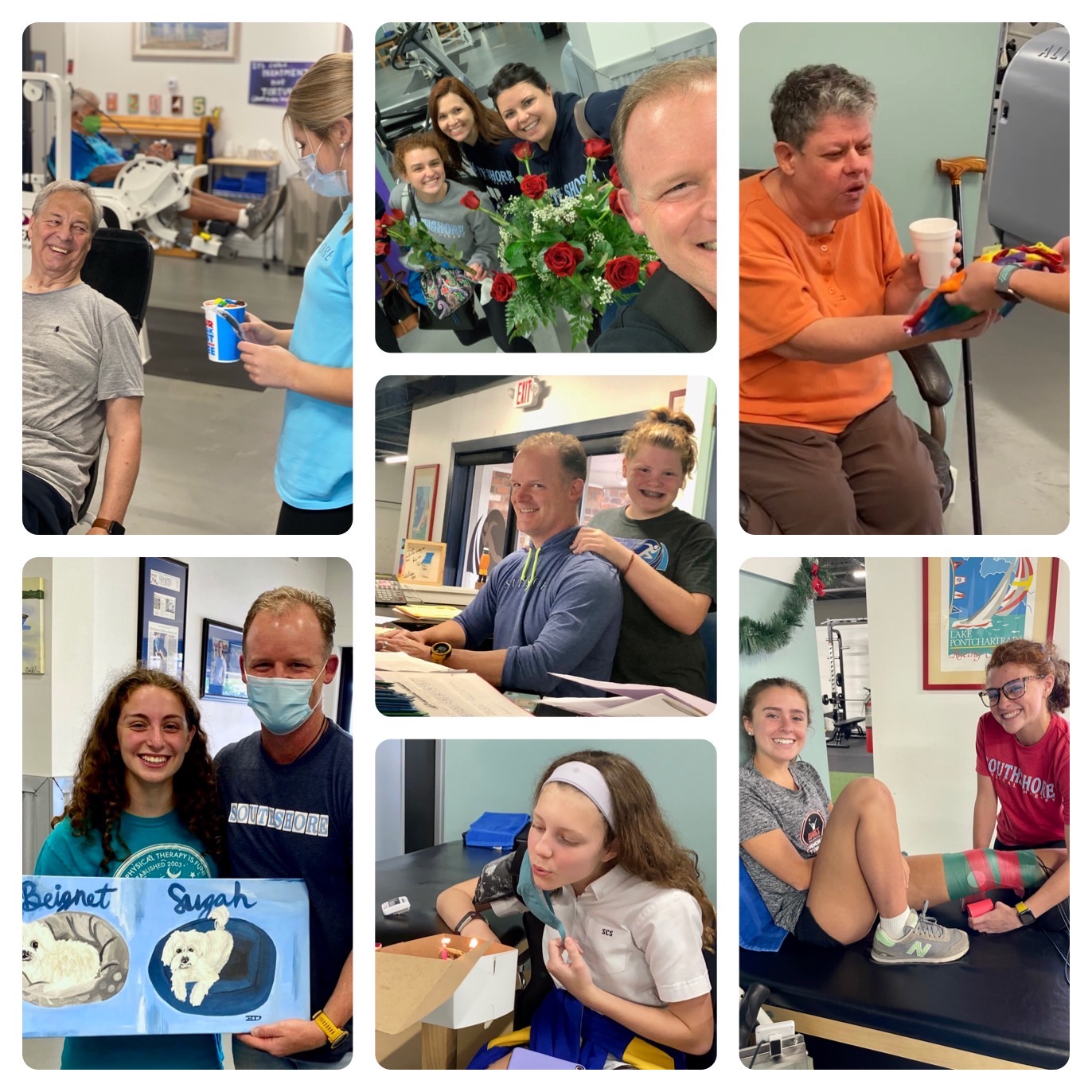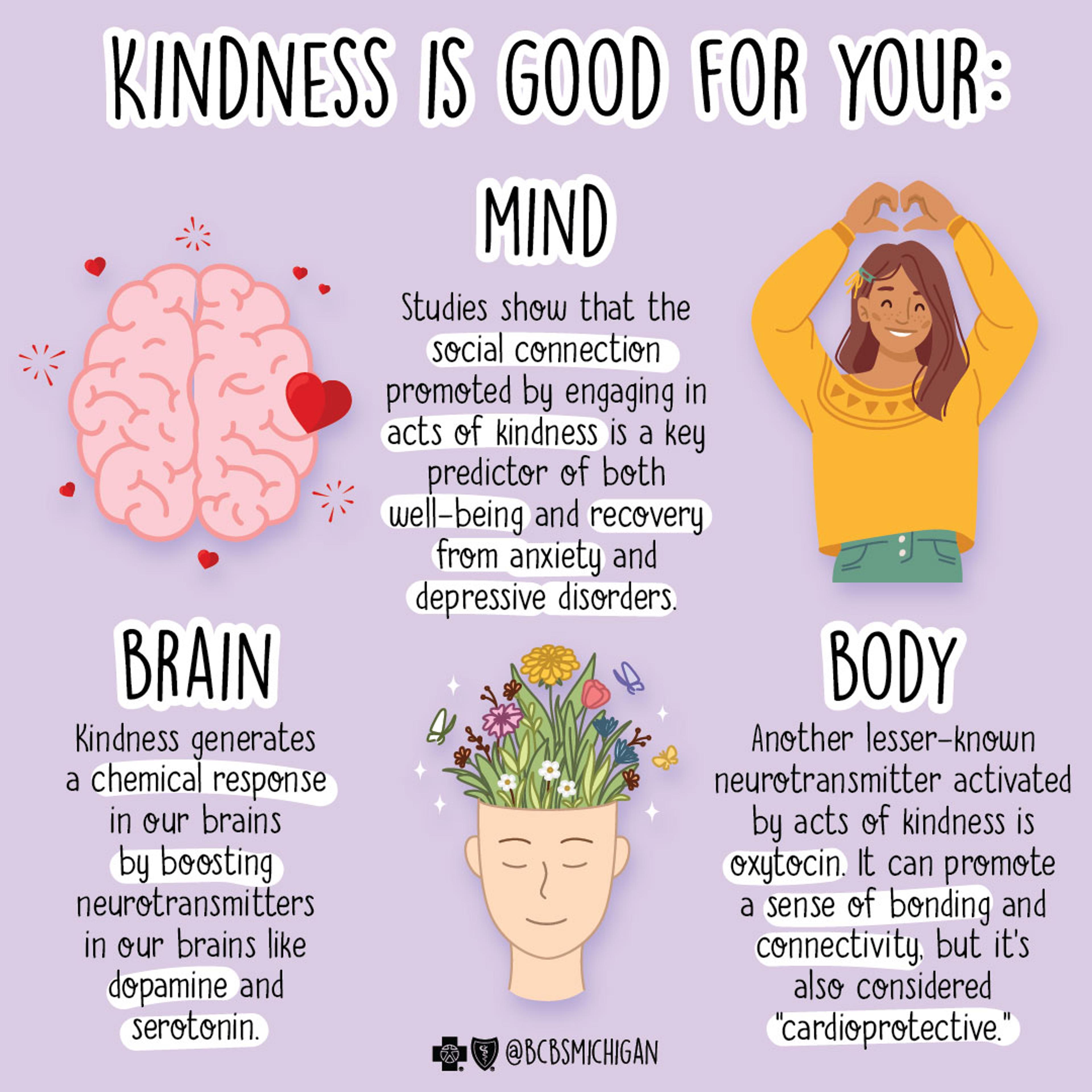When it comes to physical therapy, kindness can be just as important as the exercises themselves. Imagine walking into a clinic where you're not just another patient but a person who matters. That's what kindness physical therapy is all about. It's not just about healing your body; it's about healing your spirit too. This approach combines traditional physical therapy techniques with an emphasis on empathy and compassion, creating a healing environment that goes beyond the physical.
In today's fast-paced world, we often forget the power of human connection. Kindness physical therapy reminds us that healing isn't just about muscles and joints. It's about the heart too. When therapists take the time to listen, understand, and genuinely care for their patients, the results can be transformative. It's like getting a warm hug along with your stretches and exercises. Who wouldn't want that, right?
This isn't just some new-age idea either. Studies have shown that when patients feel cared for and understood, they're more likely to stick with their treatment plans and see better results. It's like when you're having a bad day, and someone says something nice to you. It makes a difference, doesn't it? That's what kindness physical therapy is all about—making a difference in people's lives, one session at a time.
Read also:Donald Trumps Daily Routine A Peek Into The Expresidents Schedule
What Exactly is Kindness Physical Therapy?
Kindness physical therapy is a holistic approach to healing that combines traditional physical therapy techniques with an emphasis on empathy and compassion. It's not just about fixing what's broken; it's about creating a supportive environment where patients feel valued and understood. Think of it like this: you're not just going to therapy; you're going to a place where people genuinely care about your well-being. It's like having a cheerleader who also happens to be an expert in helping you move better.
This approach recognizes that healing isn't just about the physical body. It's about the mind and spirit too. When therapists take the time to listen to their patients' concerns, fears, and hopes, they create a partnership that can lead to better outcomes. It's not just about doing the exercises; it's about doing them with a sense of purpose and understanding. It's like when you're working out with a friend who keeps you motivated. That's what kindness physical therapy feels like.
And let's be real, who doesn't need a little extra kindness in their life? Whether you're recovering from surgery, dealing with chronic pain, or just trying to improve your overall health, having a therapist who genuinely cares can make all the difference. It's like having a personal cheerleader who also happens to know exactly what your body needs. Sounds pretty great, right?
Why Kindness Matters in Physical Therapy
You might be wondering why kindness is such a big deal in physical therapy. Well, here's the thing: when you're in pain or recovering from an injury, you're already dealing with a lot emotionally. Adding a layer of empathy and compassion can make a huge difference. Think about it. When you're feeling low, and someone takes the time to listen and understand, it lifts your spirits, doesn't it? That's what kindness physical therapy does—it lifts your spirits while helping your body heal.
Research has shown that patients who feel cared for are more likely to stick with their treatment plans. It's like when you're trying to stick to a diet, and someone encourages you along the way. You're more likely to succeed, right? The same goes for physical therapy. When patients feel supported, they're more likely to put in the effort needed to heal. It's not just about the exercises; it's about the emotional support that comes with them.
Plus, kindness can actually improve physical outcomes. Studies have shown that patients who feel understood and cared for experience less pain and faster recovery times. It's like when you're having a tough day, and someone gives you a hug. It makes you feel better, doesn't it? That's what kindness can do for your body—it can help it heal faster and more effectively.
Read also:Arnel Pineda Married A Dive Into His Personal Life And Career
How Kindness Affects Recovery
Let's dive a little deeper into how kindness affects recovery. When patients feel like their therapists genuinely care about them, they're more likely to open up about their concerns and fears. This openness can lead to better communication, which is key to effective treatment. It's like when you're having a problem, and you talk to someone about it. They can offer solutions that you might not have thought of on your own. The same goes for physical therapy. When therapists understand their patients' concerns, they can tailor treatments to meet their specific needs.
And let's not forget about the placebo effect. When patients believe that their therapists care about them, they're more likely to believe in the effectiveness of their treatments. This belief can lead to better outcomes, even if the treatments themselves haven't changed. It's like when you take a pill, and you believe it's going to work. You're more likely to feel better, right? That's the power of belief, and kindness can help create that belief in patients.
The Benefits of Kindness Physical Therapy
So, what are the benefits of kindness physical therapy? First and foremost, it leads to better patient outcomes. When patients feel cared for, they're more likely to follow through with their treatment plans, which can lead to faster recovery times and improved overall health. It's like when you're trying to learn something new, and someone encourages you along the way. You're more likely to succeed, right? The same goes for physical therapy. When patients feel supported, they're more likely to put in the effort needed to heal.
Another benefit is improved patient satisfaction. When patients feel like their therapists genuinely care about them, they're more likely to be satisfied with their care. This satisfaction can lead to better word-of-mouth referrals and a more positive reputation for the clinic. It's like when you have a great experience at a restaurant, and you tell all your friends about it. The same goes for physical therapy. When patients have a great experience, they're more likely to recommend the clinic to others.
And let's not forget about the emotional benefits. Kindness physical therapy can help reduce stress and anxiety in patients, which can lead to better overall mental health. It's like when you're feeling overwhelmed, and someone gives you a hug. It makes you feel better, doesn't it? That's what kindness can do for patients—it can help them feel more at ease during a stressful time.
Improved Patient Outcomes
Let's talk about improved patient outcomes. When patients feel like their therapists genuinely care about them, they're more likely to follow through with their treatment plans. This adherence can lead to faster recovery times and improved overall health. It's like when you're trying to learn a new skill, and someone encourages you along the way. You're more likely to succeed, right? The same goes for physical therapy. When patients feel supported, they're more likely to put in the effort needed to heal.
Plus, when patients feel understood, they're more likely to communicate openly with their therapists. This open communication can lead to more effective treatments, as therapists can tailor their approaches to meet the specific needs of each patient. It's like when you're trying to solve a problem, and you have all the information you need. You're more likely to find a solution, right? The same goes for physical therapy. When therapists have a complete understanding of their patients' needs, they can create more effective treatment plans.
How to Find a Kindness-Focused Physical Therapist
Finding a kindness-focused physical therapist might seem like a daunting task, but it's actually pretty simple. Start by asking for recommendations from friends, family, or your primary care physician. If they've had a positive experience with a therapist who emphasizes empathy and compassion, they're likely to recommend them. It's like when you're looking for a good restaurant, and someone you trust recommends one. You're more likely to try it, right?
Once you have a list of potential therapists, do a little research. Check out their websites and read reviews from other patients. Look for therapists who emphasize patient-centered care and who have a reputation for being compassionate and empathetic. It's like when you're looking for a new book to read, and you check out reviews to see if it's worth your time. The same goes for physical therapists. You want to make sure you're getting the best possible care.
And don't be afraid to ask questions during your initial consultation. Ask the therapist about their approach to care and how they incorporate empathy and compassion into their treatments. If they can't articulate how they prioritize kindness, they might not be the right fit for you. It's like when you're interviewing someone for a job. You want to make sure they have the right skills and attitude for the position, right? The same goes for physical therapists. You want to make sure they have the right approach for your needs.
Questions to Ask Potential Therapists
Here are some questions you might want to ask potential therapists:
- How do you incorporate empathy and compassion into your treatments?
- Can you share an example of a patient who benefited from your kindness-focused approach?
- How do you tailor your treatments to meet the specific needs of each patient?
- What is your approach to patient-centered care?
- How do you handle patients who are feeling anxious or overwhelmed?
These questions can help you gauge whether a therapist is truly committed to kindness-focused care or if they're just paying lip service to the idea. It's like when you're interviewing someone for a job. You want to make sure they have the right skills and attitude for the position, right? The same goes for physical therapists. You want to make sure they have the right approach for your needs.
Kindness Physical Therapy Techniques
So, what exactly do kindness physical therapy techniques look like? They can vary depending on the therapist and the patient, but they often include things like active listening, personalized treatment plans, and emotional support. It's like when you're having a conversation with someone, and they really listen to what you're saying. They don't just hear the words; they understand the meaning behind them. That's what active listening is all about.
Personalized treatment plans are another key component of kindness physical therapy. When therapists take the time to understand their patients' unique needs and concerns, they can create treatment plans that are more effective and meaningful. It's like when you're planning a trip, and you tailor it to your interests. You're more likely to enjoy it, right? The same goes for physical therapy. When treatments are tailored to individual needs, they're more likely to be successful.
And let's not forget about emotional support. Kindness physical therapy recognizes that healing isn't just about the physical body. It's about the mind and spirit too. When therapists offer emotional support, they help patients feel more at ease during a stressful time. It's like when you're feeling overwhelmed, and someone gives you a hug. It makes you feel better, doesn't it? That's what emotional support can do for patients—it can help them feel more at ease during a tough time.
Examples of Kindness in Action
Let's look at some examples of kindness in action. One therapist might take the time to listen to a patient's concerns about returning to work after an injury. They might offer reassurance and develop a treatment plan that addresses both the physical and emotional aspects of the patient's recovery. It's like when you're worried about something, and someone takes the time to listen and offer solutions. It makes you feel better, right?
Another therapist might offer emotional support to a patient who is feeling anxious about their ability to return to their favorite sport. They might provide encouragement and develop a treatment plan that focuses on building confidence as well as physical strength. It's like when you're trying to learn a new skill, and someone believes in you. You're more likely to succeed, right? The same goes for physical therapy. When therapists believe in their patients, they're more likely to succeed.
Challenges in Implementing Kindness Physical Therapy
Of course, there are challenges in implementing kindness physical therapy. One of the biggest challenges is time. In today's fast-paced healthcare environment, therapists often have limited time to spend with each patient. This time constraint can make it difficult to provide the level of empathy and compassion that kindness physical therapy requires. It's like when you're trying to have a deep conversation with someone, but you only have a few minutes. It's hard to really connect, right?
Another challenge is training. Not all therapists are trained in the art of empathy and compassion. While many have the skills to perform the physical aspects of therapy, they may not have the skills to provide emotional support. It's like when you're hiring someone for a job, and they have the technical skills but not the soft skills. It can be a challenge to find someone who has both, right? The same goes for physical therapists. It can be a challenge to find someone who has both the technical and emotional skills needed for kindness physical therapy.
Despite these challenges, many therapists are committed to providing kindness-focused care. They recognize the importance of empathy and compassion in the healing process and are willing to go the extra mile to provide it. It's like when you're passionate about something, and you're willing to put in the extra effort to make it happen. That's what kindness physical therapy is all about—going the extra mile for patients.
Overcoming Time Constraints
So, how can therapists overcome time constraints to provide kindness-focused care? One approach is to use technology to streamline administrative tasks


